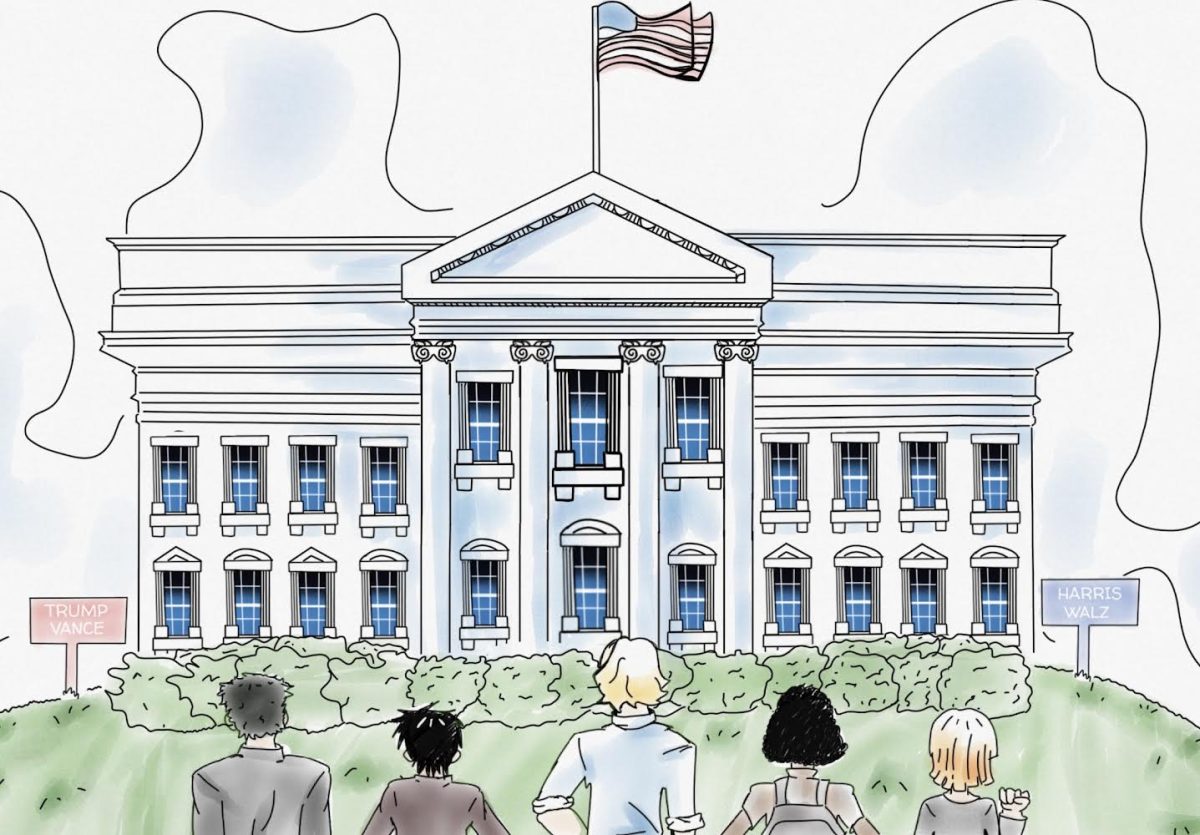The 2024 election has been a hotly debated topic, especially when Joe Biden dropped out of the race and left it to Vice President Kamala Harris. Both Harris and Trump have vocally spoken about their plans for the education system, and according to edweek.org, this might be the deciding factor in this election.
Harris-Walz’ campaign plan has been geared toward acknowledging the need and importance for education, both in primary and secondary school, throughout the new youth whereas Trump-Vance’s campaign plans have targeted education in an almost negative light by hoping to take away vital information from student’s education programs.
According to Harris’ campaign website and policy plan, she’s hoping to end student loan debt.
For many students, the prospect of paying for college and taking out loans is stressful and hard to navigate. On top of that, according to bestcolleges.org, Harris hopes to make college tuition free for students who earn less than $125,000 annually, which affects 80% of the United States population. The reason that Harris’ debt policy is important is because 51% of Americans start out with debt because of student loans to pay for college, meaning that so many more young adults could start out their careers debt free and not spend years paying back student loans.
Additionally, Harris wants to improve teacher work environments and reduce the amount of emphasis on standardized testing in an effort to improve repetitive absenteeism.
Governor Tim Walz has views similar to Harris that are shown in the ‘Due North Education Plan’ which was a Minnesota law that was introduced in 2021.
The plan’s goal was to support students struggling after the COVID-19 pandemic by doing things such as expanding opportunities and increasing mental health services to support students.
Another goal the plan strives to implement is to provide more resources and opportunities for Indigenous students and students of color. This includes adding an equity, diversity and inclusion center at the Minnesota Department of Education to grow an anti-racist workforce, which includes launching programs to gain and retain both teachers of color and Indigenous teachers.
Like Harris’ plan, Walz also supported growing the Advanced Placement (AP) and concurrent class enrollments and expanding career and technical education throughout Minnesota.
Overall, the Harris-Walz plan shows abundant support for equality through education and opportunities for all.
Trump’s plan, however, would take us several steps in the opposite direction.
One of his main plans for education is to completely eliminate teacher tenure, which guarantees that a teacher cannot be fired without a fair hearing. The reason this might result in problems is the fact that it could be abused to fire teachers for political or personal reasons within a school district. It also presents the problem of schools then being able to fire experienced teachers to hire new ones that will accept a lesser pay, overall diminishing the quality of education and affecting students.
Instead of teacher tenure, Trump wishes to implement merit pay throughout schools. While that may slightly benefit some schools, it forces competition in schools and makes teachers lose focus on their job of educating students and more towards different ways to make money when they should be focused on providing quality education to future generations. Merit pay could also lead to a decline in teachers throughout the country due to job insecurity based on certain teachers making more money than others who have been there longer and worked harder throughout their time educating students.
Trump also launched a pro-American lesson plan for students called the 1776 Commision which promotes patriotic education and values in the classroom.
“Every child in America needs to learn that they live in the greatest, most exceptional Nation in the history of the world,” Trump said in his 2024 GOP platform while discussing his upcoming policies on patriotic education.
This presents a problem because it implements a plan that would erase aspects of history and paint the ideal that the United States is an undivided, sovereign country that cannot be conquered. Therefore raising generations of students ignorant to the dark sides of history like the Civil War that the United States has been a part of.
With that he also seeks to take away Civics education, according to his GOP platform and only support schools that teach the founding principles of America and Western Civilization. Civics is required in almost every state to graduate, including Arkansas which would mean that taking it out of the curriculum would leave teachers with less jobs and students with less knowledge of history which can be vital to upbringings in young adults.
Additionally Trump also hopes to enforce the Freedom to Pray, however he’s mainly focused on Christianity by producing a bible called “God Bless the USA Bible” to incorporate into schools and supporting Christian based programs throughout the nation. In doing this, while it may benefit some students in their right to religion, there are around 122 million people in the United States who don’t identify as Christian, leaving many unspoken for in their schools.
With the information presented, it can be argued that while Donald Trump could bring forth some benefits for our school system, Kamala Harris and Tim Walz are striving to make sure that everyone is accounted for in every way throughout our district and across the country.








